 Sharing information and digital media about public art has never been an easy task for arts administrators. The Western States Arts Federation (WESTAF) seeks to change that when they launch the Public Art Archive - an online, searchable database for public art in the United States. A tool for both arts administrators and the general public, WESTAF’s vision is for the Archive to serve as an easy to use, central source of information about public art. I recently had a chance to speak with the creators of the Public Art Archive and take a guided tour through the site.
Sharing information and digital media about public art has never been an easy task for arts administrators. The Western States Arts Federation (WESTAF) seeks to change that when they launch the Public Art Archive - an online, searchable database for public art in the United States. A tool for both arts administrators and the general public, WESTAF’s vision is for the Archive to serve as an easy to use, central source of information about public art. I recently had a chance to speak with the creators of the Public Art Archive and take a guided tour through the site.
The Public Art Archive has a straightforward, user-friendly interface. Entry to the Archive takes place through a simple search bar on the front page, powered by Solr, an open-source search platform from by the Apache Lucene project. You may already be familiar with Solr, as it is the search engine used by both Etsy.com and FoodNetwork.com.
Solr allows you to refine simple searches on the Archive through multiple filters with a variety of search criteria such as artist, location, materials, collections and even nicknames. The search criteria and vocabulary for the site was built from the same standards as those used by reference websites like ARTstor and the digital library projects at Harvard.
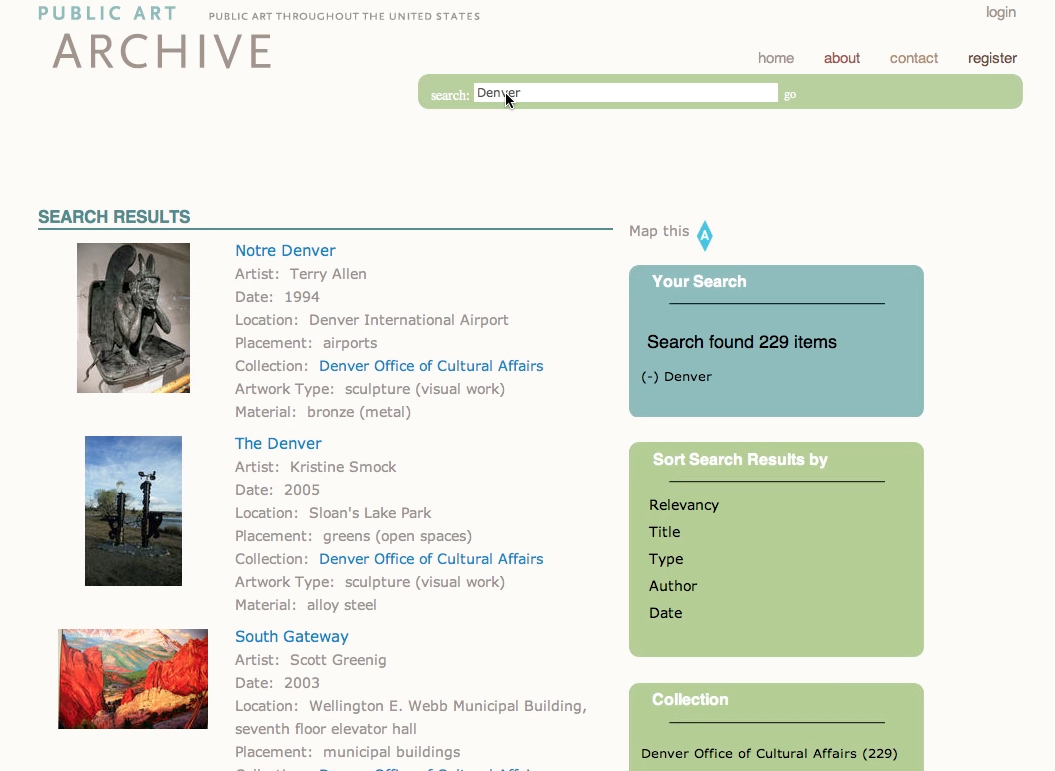
Once they’ve found the artwork they are searching for, users are presented with a variety of information and media about the work. In addition to the artwork’s basic info, users can view pictures and video, download PDFs about the artwork, and listen to audio describing the piece.
While the capability for all this content is built in, individual administrators must submit all information and media for each artwork. The Archive has no limit on the amount of content that can be submitted for each work and submission of the content is free. At a minimum, the site requires a full description for each work, as well as its location, and one high quality image.
To enable use of the Archive when an individual is physically in front of a work of public art, the Archive will be accessible from any web-enabled mobile device. No specific apps will be required, users just plug the main url for the Archive into their phone's web browser to access the full functionality of the site.
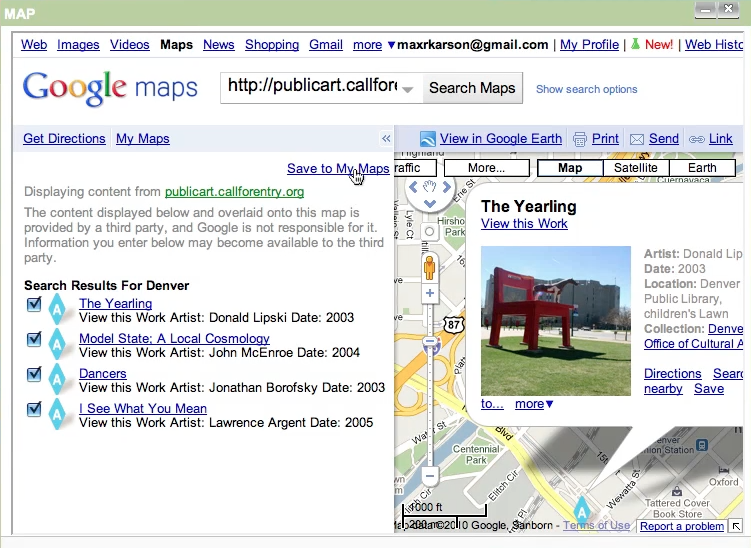
The Public Art Archive will also be fully integrated with Google Maps. By clicking the site’s “Map This” icon, users will be able to view exactly where the artworks are located and build custom maps of artworks that can be shared with others or saved for later use. Administrators can use the mapping function to create custom maps for use in tours of their collection, maintenance tasks, and advocacy initiatives.
The ability for organizations to create personalized pages so they can maintain their identity will be added as the Archive progresses. WESTAF also plans to have licenses available to give organizations access to the more administrative functions of the Archive.
The Public Art Archive will be launching in the near future, but until then visit westaf.org to check out some of WESTAF's other projects that offer technological solutions for arts administrators.

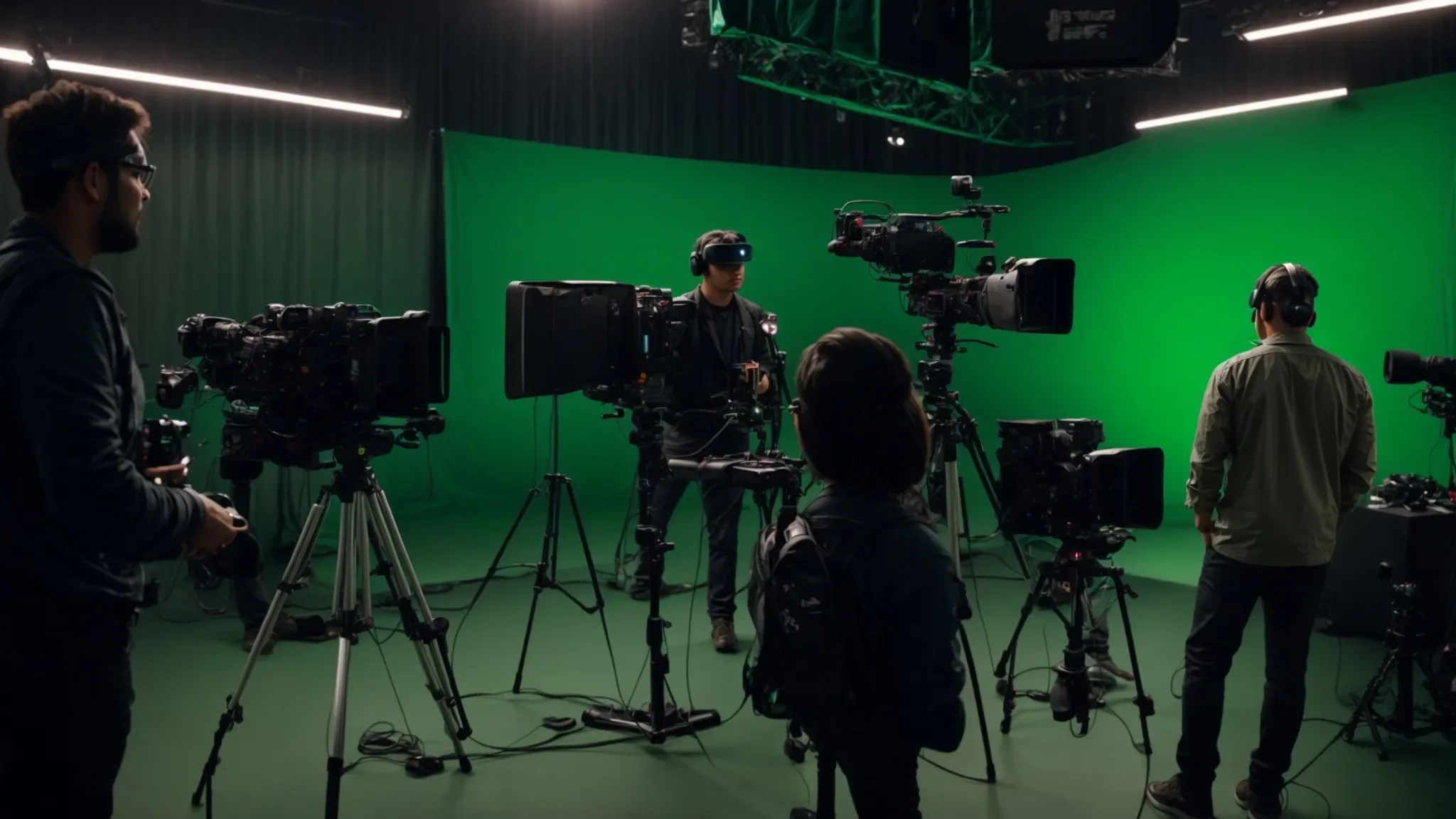

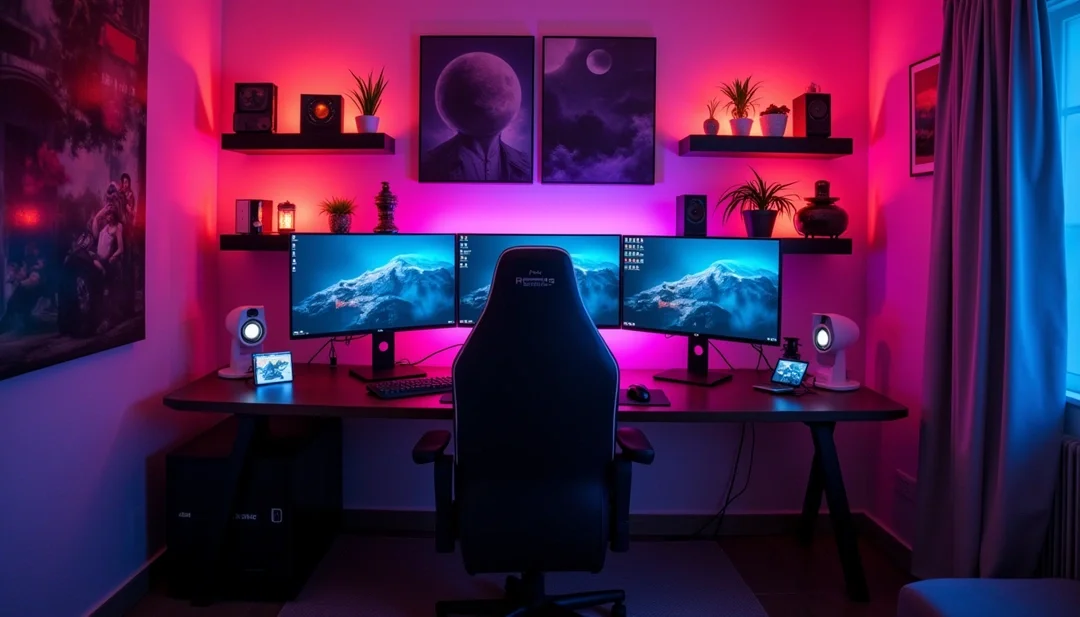
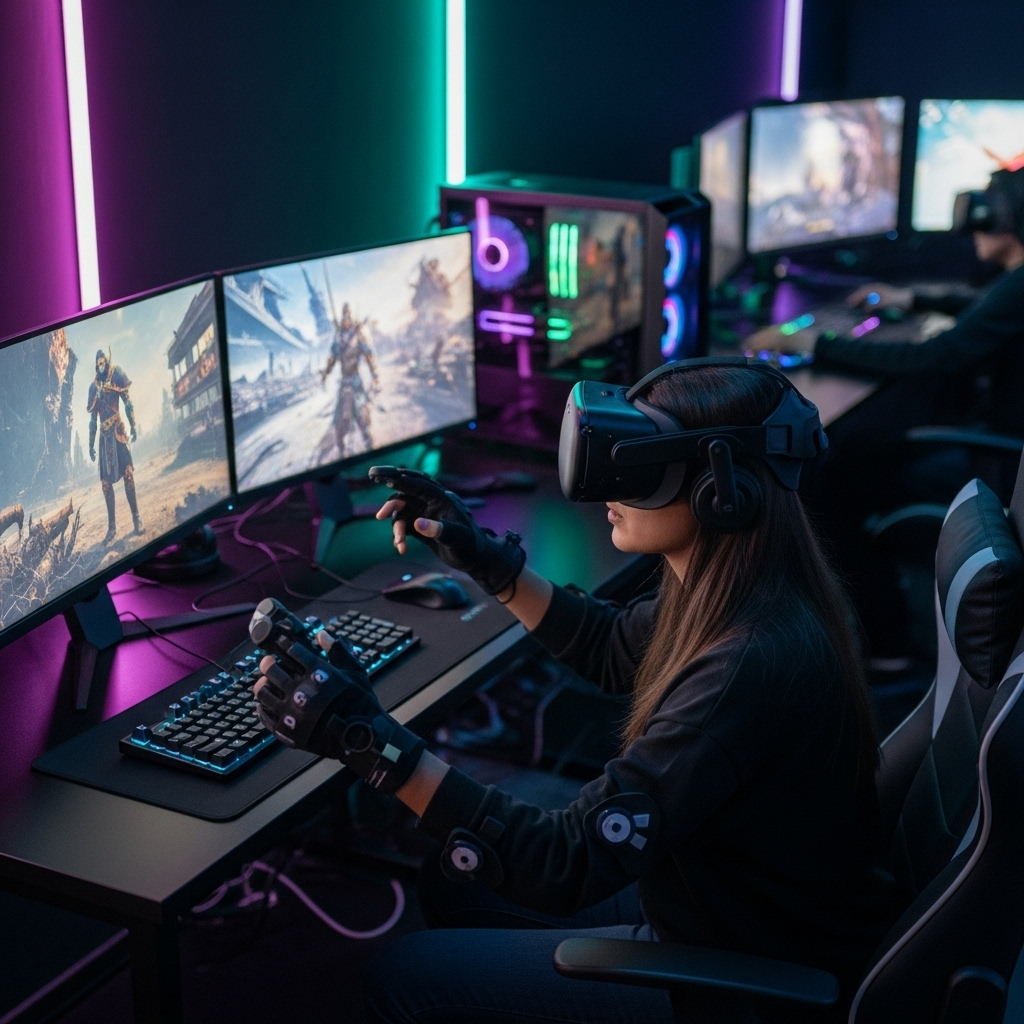

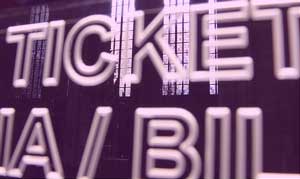
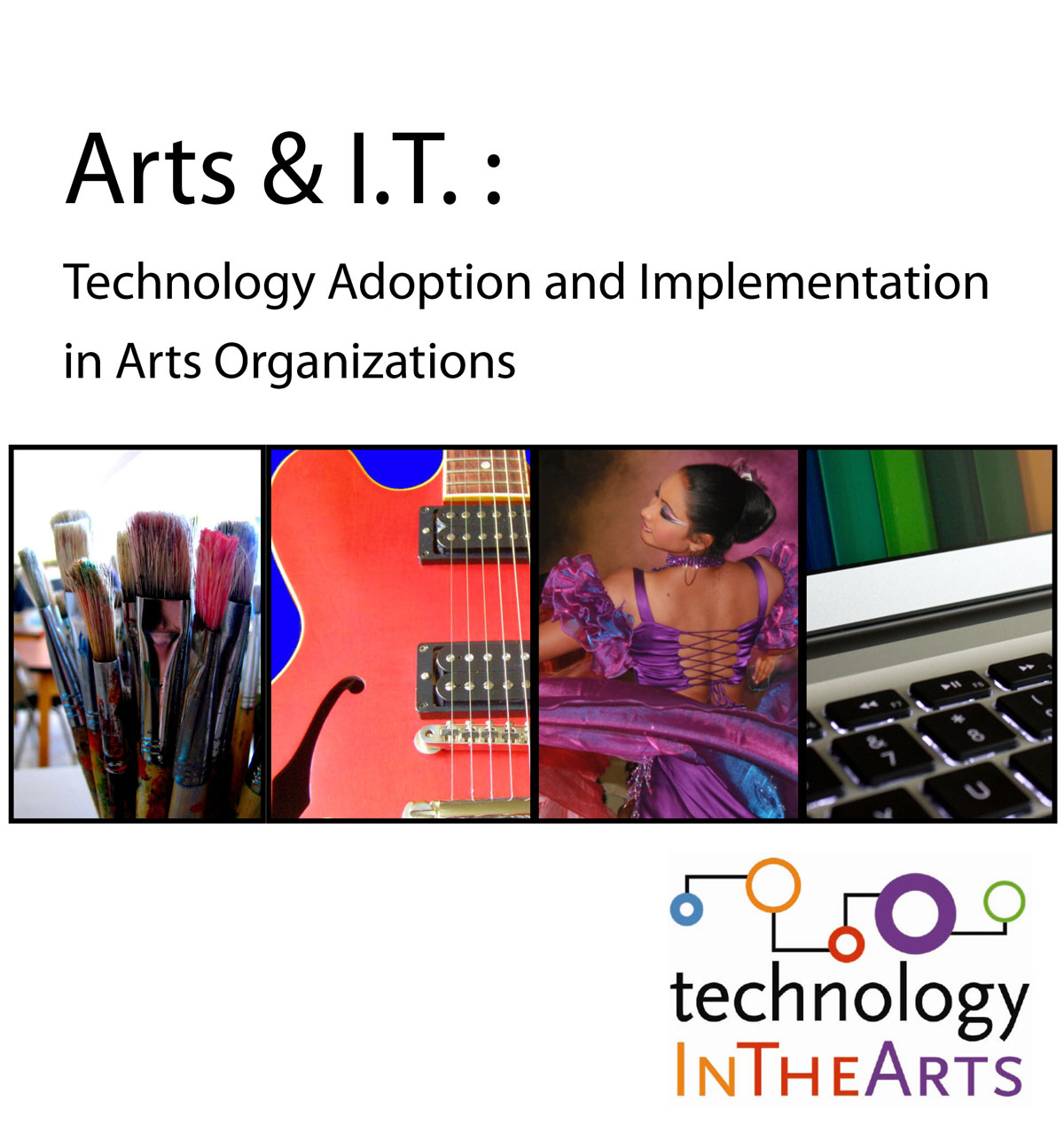
 From digital archiving techniques to mobile websites, museums around the country are finding news ways to innovate in our current and rapidly changing information age. There is now an emphasis on experimentation and testing the boundaries of what traditionally defines a museum.
The Institute of Museum and Library Services
From digital archiving techniques to mobile websites, museums around the country are finding news ways to innovate in our current and rapidly changing information age. There is now an emphasis on experimentation and testing the boundaries of what traditionally defines a museum.
The Institute of Museum and Library Services  Getting the Most Out of Twitter
Getting the Most Out of Twitter David Dombrosky is the Executive Director of the
David Dombrosky is the Executive Director of the  Sharing information and digital media about public art has never been an easy task for arts administrators. The
Sharing information and digital media about public art has never been an easy task for arts administrators. The 



